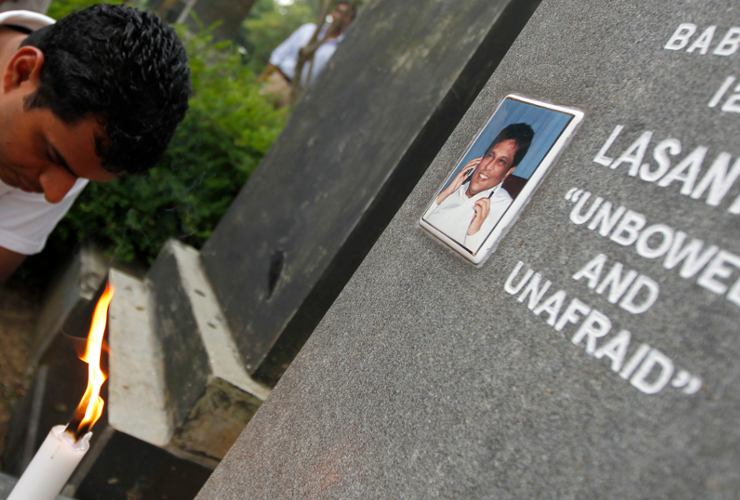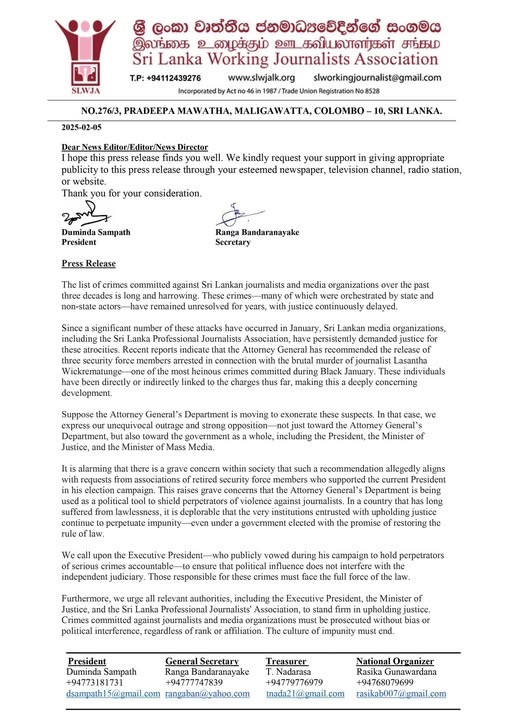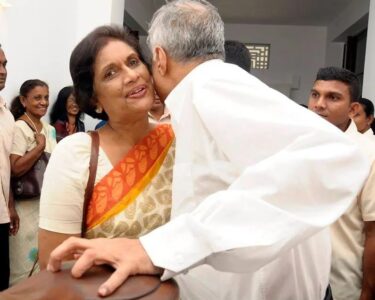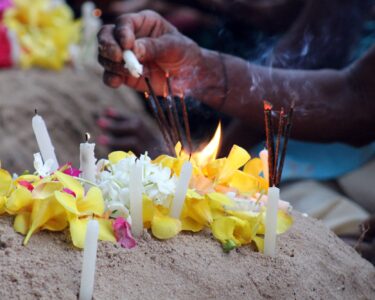Outrage Over Attorney General’s Recommendation to Release Suspects in Lasantha Wickrematunge Murder Case
The ongoing struggle for justice in Sri Lanka’s long history of crimes against journalists has taken another troubling turn, as the Attorney General’s Department has reportedly recommended the release of three security force members arrested in connection with the brutal assassination of journalist Lasantha Wickrematunge. This decision has sparked widespread condemnation from media organizations and civil society, reigniting concerns over impunity and political influence in the country’s judicial system.

Lasantha Wickrematunge, the founder and editor of The Sunday Leader, was assassinated in broad daylight in January 2009, a killing that remains one of the most heinous crimes in Sri Lanka’s history of media suppression. His murder is part of the broader pattern of violence against journalists, particularly in January—often referred to as Black January due to the number of targeted attacks on media personnel during this period. Many of these crimes, allegedly orchestrated by both state and non-state actors, remain unresolved, perpetuating a culture of fear and silence.
Strong Words
The recent recommendation to exonerate the suspects has alarmed media organizations, including the Sri Lanka Professional Journalists Association, which has long called for accountability in such cases. Critics argue that this move raises serious questions about political interference in the judiciary, particularly given allegations that retired security force associations—who were key supporters of the current President during his election campaign—have influenced the Attorney General’s decision.
“If the Attorney General’s Department is indeed moving to clear the suspects, it is a blatant act of injustice,” a spokesperson for a prominent journalist rights group said. “We strongly oppose this decision and demand that all individuals responsible for these crimes be held accountable, regardless of their status or political affiliations.”
Sri Lanka has a troubling history of lawlessness and impunity regarding crimes against journalists. Successive governments have failed to bring perpetrators to justice, despite repeated pledges to uphold the rule of law. The current administration came into power with promises of judicial independence and accountability, but the latest developments cast doubt on these commitments.
The Sri Lanka Professional Journalists Association and other media advocacy groups have called on the Executive President, the Minister of Justice, and other relevant authorities to ensure that political considerations do not obstruct justice. They have urged the government to stand firm in its responsibility to prosecute those responsible for crimes against journalists and media institutions.
As pressure mounts from both domestic and international human rights groups, the government faces a crucial test in demonstrating its commitment to justice and press freedom. The culture of impunity must end, and perpetrators must face the full force of the law to ensure that Sri Lanka’s media can operate without fear of violence or suppression.







